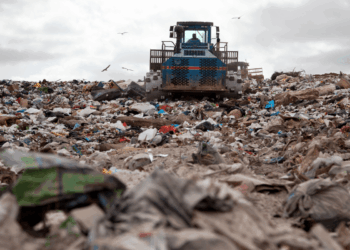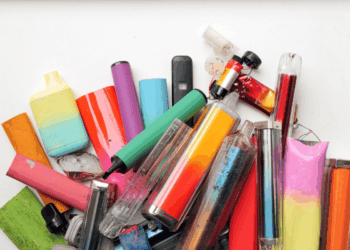Citing concerns over COVID-19, a major retailer, the largest U.S. city and a handful of other electronics recycling collection channels have paused services.
The novel coronavirus and associated COVID-19 illness have upended daily life throughout the U.S. As of March 25 there were 62,873 cases in the U.S., which had led to 894 deaths, according to Johns Hopkins University.
Impacts are being felt in the e-scrap world, where processors are already seeing disruption in upstream supply and downstream demand. This week, more collection changes were announced.
Retail program suspended
Best Buy on March 22 announced its retail stores would close to the public, in favor of a “contactless” system where customers can have purchases made online delivered to their cars outside stores.
As part of that shift, the company is temporarily suspending product trade-in and recycling activities.
Best Buy, which describes its e-scrap collection system as “the most comprehensive consumer electronics recycling program in the U.S.,” offers electronics recycling at nearly 1,000 stores in the U.S., according to the company’s 2019 sustainability report.
Last year, the company reported it had collected 2 billion pounds of electronics and appliances since the program launched in 2009. In 2019, the company handled nearly 1 million devices through its trade-in program, according to the sustainability report.
Nation’s largest city suspends device collection
The New York Department of Sanitation (DSNY) has in recent years offered curbside e-scrap collection service at residential buildings up to nine units in size. Larger buildings can sign up for the “ecycleNYC” program. ERI processes material collected through both programs.
However, as part of its response to the coronavirus, DSNY announced on March 20 it would suspend collections at both smaller and larger multi-family buildings.
The change came alongside other special collection service shifts, including suspensions of household hazardous waste, textiles and food scrap drop-off sites.
The changes were made “to conform to current public gathering guidelines and better provide our essential services,” the department stated.
Regular curbside garbage and recycling collection are continuing.
New York has been particularly hard hit by the coronavirus, recording 30,811 confirmed cases and 192 deaths as of March 25, according to Johns Hopkins University. At least 32 DSNY employees tested positive for COVID-19 as of March 23.
Curbside service in Illinois
Illinois-based Lakeshore Recycling Systems (LRS) offers curbside electronics collection alongside regular residential recycling service. But that e-scrap option is now on hold.
“Due to the COVID-19 pandemic and the health concerns associated with virus, LRS must suspend our electronic waste collection services,” the company announced, asking customers to check in on May 1 for an update on electronics collection services.
LRS serves a host of communities throughout Illinois.
Drop-off events cancelled
Social distancing guidelines and local regulations have spurred the cancellation of numerous electronics collection events around the country.
Event cancellations and program suspensions were announced in Allentown, Pa., Cocke County, Tenn., Duchess County, N.Y., Fort Wayne, Ind., LaSalle County, Ill., Manitowoc County, Wis., Medfield, Mass., Northbrook, Ill., Orange County, Va., Rome, Ga., St. John, Ind., Wheatfield, N.Y. and elsewhere.
Other drop-off services, such as an upcoming event hosted in Aurora, Colo., are moving forward but asking residents to take additional social distancing measures when delivering items.
TERRA
As more residents across the U.S. are asked to stay home, one e-scrap collection service has a business model that is as yet unaffected. In fact, TERRA says its Done with IT mail-in e-scrap collection service offers safety in the time of coronavirus.
The Electronics Reuse and Recycling Alliance (TERRA) provides a mail-in option for consumers and businesses looking to recycle their end-of-life devices. Under the process, which uses the U.S. Postal Service for shipping, it takes between two and eight days for a device to get to a processing facility.
Studies have recently examined how long the coronavirus can live on surfaces. The National Institutes of Health found the virus was detectable “up to four hours on copper, up to 24 hours on cardboard and up to two to three days on plastic and stainless steel.”
TERRA is available in 43 states.

























